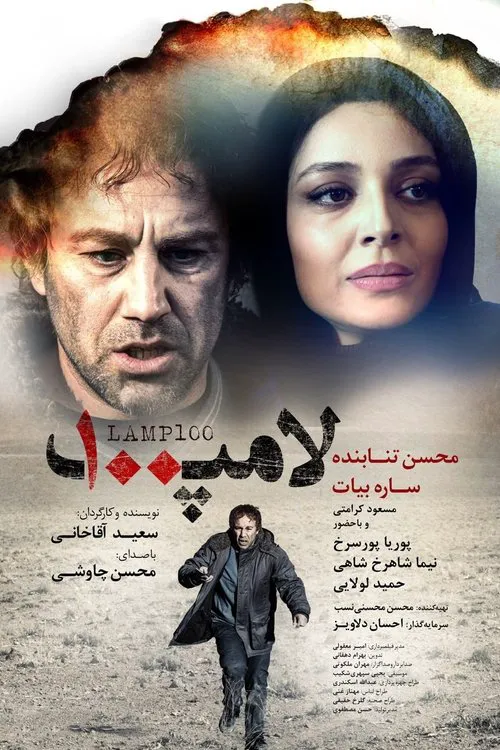100W Bulb

Plot
100 Watt is a 2015 Iranian film directed by Kamal Tabrizi, which delves into the life of Farzin, a struggling individual addicted to narcotics. The movie opens by showcasing Farzin's (played by Mohsen Tanabandeh) life in the present, interspersed with flashbacks that paint a comprehensive picture of his journey. The story revolves around Farzin's family, which includes his parents and sisters, all of whom play pivotal roles in shaping his life. As the story unwinds, we learn that Farzin has fallen prey to narcotics, struggling to reconcile his desire to break free from his addiction with the helplessness that comes with surrendering to it. His life is a downward spiral, marked by repeated attempts to quit using, followed by relapses that seem to be inevitable. Amidst this turmoil, Farzin finds solace in his family, who love him unconditionally, yet are also torn between helping him recover and enabling his destructive behavior. The film highlights the complexities of addiction, portraying it as a multifaceted issue that affects not just the individual but also those closest to them. Through Farzin's narrative, the story showcases the emotional highs and lows that come with living with addiction. Mohsen Tanabandeh's portrayal of Farzin is nuanced and poignant, evoking a deep sense of empathy in the audience as they witness his struggles firsthand. The portrayal of Farzin's family adds depth to the narrative, as they grapple with the consequences of his addiction. His parents, played by Leila Mehranfar and Mehdi Mousavian, are shown trying to provide the necessary support, but their efforts often feel futile. Their love for Farzin is unwavering, yet they struggle to navigate the fine line between being supportive and enabling his behavior. Meanwhile, Farzin's sisters, played by Taraneh Alidoosti and Hengameh Ghaziani, serve as a voice of reason, urging him to seek help and break free from his addiction. However, their words often fall on deaf ears, as Farzin's struggles to overcome his demons prove to be a significant challenge. The film also explores the societal factors that contribute to Farzin's addiction. Iran, like many other countries, grapples with the issue of substance abuse. The movie highlights the prevalence of narcotics in Iranian society, showcasing how easily accessible they are, particularly among the younger generation. By doing so, the story sheds light on the need for greater awareness and education about the dangers of addiction, as well as the importance of providing support systems for those struggling with it. Throughout the film, the director skillfully weaves together the various narrative threads, creating a moving and powerful story that is both poignant and thought-provoking. The camerawork is simple yet effective, capturing the harsh realities of life with addiction. The cinematography is stark and raw, reflecting the emotional state of the characters, particularly Farzin. The film's pace is deliberate and measured, reflecting the complexities of addiction. The story unfolds gradually, allowing the audience to become fully invested in Farzin's journey. The emotional highs and lows are palpable, as the audience witnesses his attempts to recover, followed by relapses that prove devastating. Ultimately, 100 Watt is a powerful exploration of the human condition, shedding light on the struggles of addiction and the importance of seeking help. It is a moving and poignant story that raises important questions about the nature of addiction and the societal factors that contribute to it. The film is a must-watch for anyone interested in exploring the complexities of addiction and the transformative power of love and redemption.
Reviews
Recommendations


